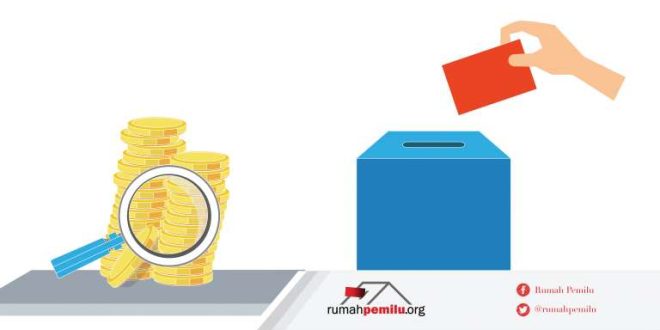The initial campaign fund report submission (Laporan Awal Dana Kampanye or LADK) of political parties is considered non-transparent and unaccountable. This is based on the fact that many political parties have not completed all the forms and supporting data required for the LADK submission. However, it is essential for the LADK to clearly capture all campaign fund receipts, including reports of campaign funds from legislative candidates contributed in the form of campaign services.
In the revised release of the political party’s LADK on January 14, 2024, it is indicated that the status of LADK receipts for several parties is still incomplete and not in accordance. Among them, the status of LADK revision receipts for some parties still shows documents that are either incomplete or inaccurate,” said Kahfi Adlan Hafiz, a researcher from the Association for Elections and Democracy (Perkumpulan untuk Pemilu dan Demokrasi or Perludem), during a press conference titled “Pretend to be Open: Revealing the Falsehood of Political Party Campaign Fund Reports” on January 16th.
Kahfi mentioned that there are numerous discrepancies in the submission of Political Parties’ LADK, based on the revised LADK released by the General Election Commission (Komisi Pemilihan Umum or KPU) on January 14, 2024. According to the press release on the revised LADK, there are several significant changes in the data compared to the previous report, including the number of legislative candidates submitting LADK, as well as the amounts of receipts and expenditures of political parties.
Perludem and Indonesia Corruption Watch (ICW), through a comparison of the initial and revised LADK, found that for some parties, the amounts of receipts and expenditures remained unchanged, even though the number of legislative candidates submitting LADK either increased or decreased. These findings indicate a lack of honesty on the part of political parties in correcting their LADK submissions to the KPU.
“There are indications of dishonesty in the revision of the LADK. When comparing the initial LADK with the revised LADK, there are some parties where the reporting completeness of their candidates, initially not at 100%, later changed to 100%, but the amounts of receipts and expenditures remained the same,” explained Kahfi.
Regarding these findings, Kahfi explained that Partai Buruh [the Labor Party], which initially had two candidates not reporting their LADK, changed to all candidates reporting, but the amounts of receipts and expenditures remained unchanged. The same situation occurred in Partai Gelombang Rakyat Indonesia [the Indonesian People’s Wave Party] (Gelora), where initially 110 candidates did not submit LADK, but later all reported without any changes in the nominal amounts of receipts and expenditures. Meanwhile, Partai Garda Republik Indonesia [the Indonesian Republic Guard Party] (Garuda) and the Demokrat Party, initially all reporting LADK, changed with one candidate not reporting LADK, but without reducing the total amounts of campaign fund receipts and expenditures.
“Figures that change drastically, such as these, should certainly be seen as an indication of dishonesty on the political parties in reporting the revised LADK,” he emphasized.
Meanwhile, Seira Tamara, a Researcher in the Political Corruption Division at ICW, stated that the reporting of LADK should be transparent and accountable to ensure that no illicit funds enter political financing. However, she observed that election organizers did not design the LADK to support transparency and accountability for political parties. According to her, the reporting format does not provide clear information and has the potential for manipulation.
“The report details should be there because with that, we will not only know the figures but also understand which parties dominate campaign funding. This is important to make decisions based on complete information that has been obtained,” said Seira.
Seira also highlighted the findings of the Indonesian Financial Transaction Reports and Analysis Center (Pusat Pelaporan dan Analisis Transaksi Keuangan or PPATK) regarding suspected transactions during the election process. In their latest findings, PPATK revealed that there were suspicious transactions amounting to IDR 51 trillion carried out by 100 legislative candidates. Previously, PPATK also reported an increase in the transactions of funds received from abroad involving 21 political party branches, totaling IDR 195 billion.
“This needs to be followed up by the Election Supervisory Body (Badan Pengawas Pemilihan Umum or Bawaslu) and other law enforcement agencies to investigate whether there are any violations involved. As for the information from PPATK, we don’t yet know how it will be followed up. The process of investigation and in-depth analysis should be conducted promptly so that the imposition of sanctions can be carried out in a timely manner,” she stated. []
Translated by Catherine Natalia
 Rumah Pemilu Indonesia Election Portal
Rumah Pemilu Indonesia Election Portal




